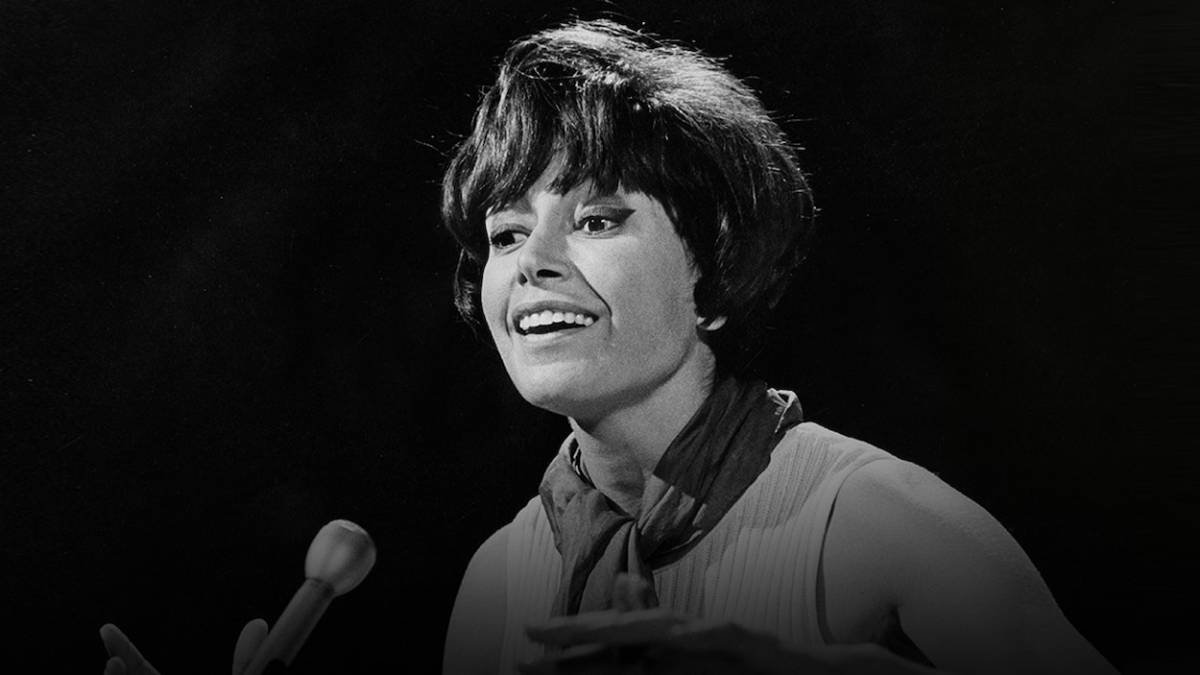She was a statuesque beauty whose talent was matched only by her composure, so it’s shocking to see Pauline Julien’s mug shot. Appearing rattled but defiant, the Québécois singer and activist had been arrested, along with her partner, poet Gérald Godin, under the War Measures Act of 1970, two high-value targets in the federal government’s heavy-handed response to the October Crisis.
Godin would become a Parti Québécois MP in 1976, while Julien, less well known in English-speaking Canada, assumed her role as one of the great artistic voices aligned with Quebec’s independence movement. As we learn in the fine NFB doc Pauline Julien: Intime et Politique—opening the 25th Rendez-vous French Film Festival next Friday (February 1)—Julien was a rising star in France, singing the songs of Quebec composers like Gilles Vigneault, significantly, before returning to Montreal in the early '60s and taking a hard left into the radical politics of her home province.
“She was beautiful, she was a great singer, and she could speak her mind,” Rendez-vous founder Régis Painchaud tells the Georgia Straight, explaining that Julien short-circuited her own career in some ways when she declined—unlike other Québécois artists—to merely translate American and British hits for the French-speaking audience. “Once she started to be really involved in the sovereigntist movement, she wasn’t on Radio-Canada anymore but she was more with the people,” he says. “She had a lot of big, big hits, even if commercial radio wasn’t interested.”
Painchaud reveals that his own entry into the arts, as a teenage impresario in his hometown of Saguenay, was inspired by the passionate chanteuse. “She was the goal,” he admits with a chuckle. “To have a cabaret where one day she would sing.” It never happened, but Painchaud became something of a player in his own right, opening a theatre in Montreal in 1972 where he hosted visits by William Burroughs and Allen Ginsberg, among other feats of countercultural daring.
It was a lively decade for him and everyone else in Quebec. Pauline Julien concludes its second act with footage of the singer’s bittersweet performance to a disillusioned crowd at the climax of the failed 1980 referendum, before turning from the politique to the more intime part of her story (which is bittersweet in other ways: Julien took her own life in 1998, at the age of 70).
In The Devil’s Share, screening at Rendez-vous later in the fest (date not yet confirmed), filmmaker Luc Bourdon loots some 200 NFB films to present a riveting and, frankly, unmissable portrait of La Belle Province during the Quiet Revolution. Julien is there, naturally, along with figures as varied and indelible as Robert Charlebois, Nadia Comăneci, Guy Lafleur, Micheline Lanctôt, and René Simard. One of its most searing moments depicts a stricken René Lévesque reacting to the FLQ’s murder of Pierre Laporte.
“I always tried to throw some light on ‘What is Quebec at this point in history?’ I tried to be accurate to that,” says Painchaud, who has elected, with The Devil’s Share, to give this year’s Rendez-vous attendees a massive dose of context. It feels right for the festival’s 25th anniversary, and there’s a wistful note to Painchaud’s voice as he recalls the stirring of political and cultural transformation in the early '60s.
“It was always a balance between conservative and progressive society,” he continues, pinpointing Lévesque’s tenure as minister of natural resources as a turning point. The Devil’s Share obliquely depicts the relationship between independence, secularization, and, in Painchaud’s words, “oppression through capitalism”. “But at the same time,” he concludes, chuckling again, “you look at the women in that film? It was done with style. The influence of New York and Paris was really, really present.”
Published January, 2019
